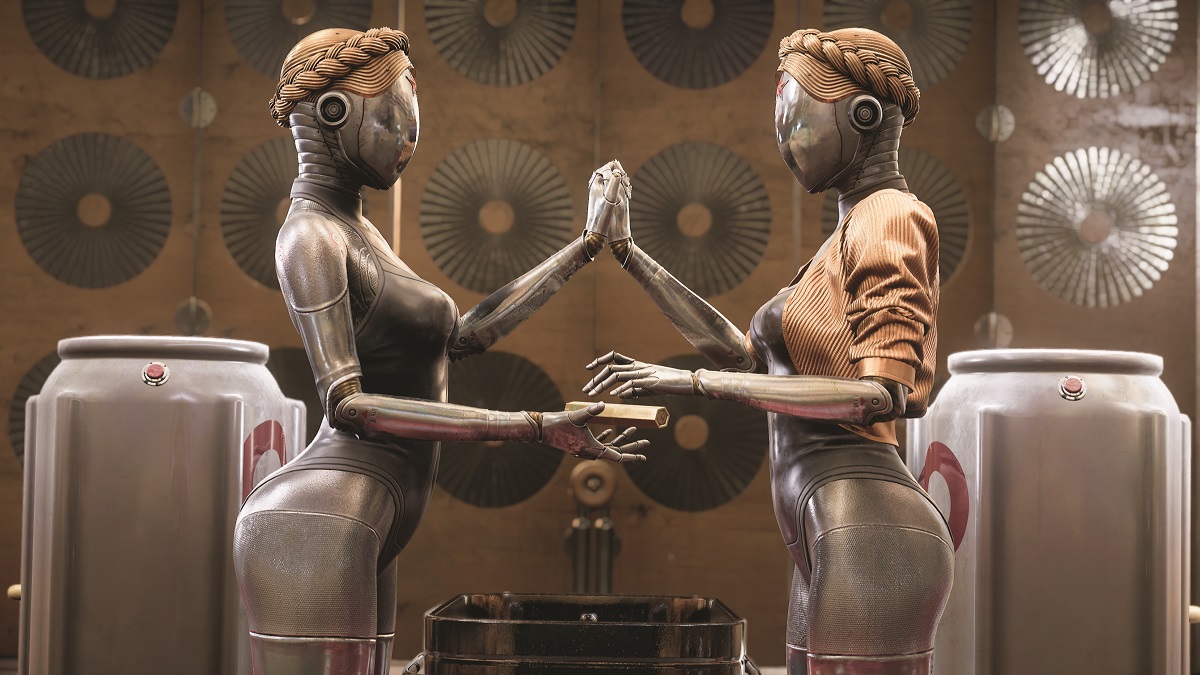After a long wait, the Bioshock-influenced and Soviet Union-set Atomic Heart is now out for people to explore. The game has received average reviews from most outlets and generated national criticism with Ukraine officials calling for its sale to be banned.
For those who have not followed this controversy, which has been drowned out by the one tied to another recent release developers of Atomic Heart have poked fun at, the problems Ukraine’s Ministry of Digital Transformation have with the piece are multifaceted. Specifically, they do not enjoy the fact the game takes place in a glamorized alternative version of the Soviet Union, want it removed from digital distribution in Ukraine, platform holders to limit sales elsewhere, and, there are some other concerns.
To begin with, questions remain about just how connected to the Russian state Atomic Heart developer Mundfish really is. A Eurogamer report from earlier this month notes a promotional event was held for Atomic Heart in November with signage reading “Glory to Soviet engineers” and some questioned whether doing such a thing for Russian media was appropriate, given the war in Ukraine and global attempts to isolate Vladimir Putin’s regime. As well, though Mundfish is in Cyprus now, they were originally formed in Moscow and, before the launch of the game, the studio had to respond to a report about the privacy policy statement on its website, which stated data they collect from users could be sent to Russia’s Federal Security Service and tax collection agents.
To be fair, Mundfish did say the policy is inaccurate and wrong and they were shutting down their site to ensure fans of their integrity. A visit to the company’s site today does show the shop is not functional as of filing and their privacy policy is updated, but people have also criticized the studio for releasing their game so close to when Russia’s invasion of Ukraine began, it has received money from figures connected to the Russian government and has put out middling statements about all of this, too.
A cultural war is now beginning online for the game and though most involved are keeping their heads down and developing post-release patches, some involved with the piece from the United States have taken a stand. Former DOOM composer Mick Gordon announced he was donating his fees for work on Atomic Heart to the Red Cross and their relief efforts in Ukraine and, while things look concerning now, those who have played say there is apparently more nuance later on in the release than shown now.
Ultimately, it is up to each company and game buyer. But, just as the Saudi Arabian regime has invested in Nintendo, so too is it the case with Atomic Heart being backed by Russians with ties to the Russian government. Little is ever clean and the battle for what it is right to own and consume ethically rages on, and is likely to get even more intense as the gaming industry grows in the future.

